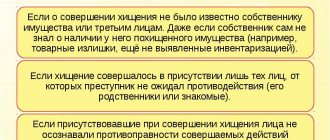Each patient, in the course of diagnosing, treating and preventing the development of diseases, provides the doctor with some personal information that is considered confidential data. The definition of “medical confidentiality” implies non-disclosure by a medical worker of information obtained as a result of communication with a person who came for help.
- Patient's secret
- When is disclosure of medical confidentiality without the patient’s consent allowed?
- Disclosure of medical confidentiality without the patient’s consent: responsibility
- Disclosure of medical confidentiality without patient consent: article
- Patient's medical confidentiality
This material will examine the legal aspects of the term, as well as cases when disclosure of medical confidentiality takes place.
What is medical confidentiality
In principle, everything is clear from the name. This is some information that doctors should not disclose. However, this applies not only to doctors, but also to other hospital personnel, as well as anyone who learned this information while performing their official duties.
Secret data includes Federal Law of November 21, 2011 N 323‑FZ:
- Diagnosis and health status of the patient.
- The very fact of going to a medical institution.
- Other information obtained during examination and treatment.
This information can only be shared with anyone with the written consent of the patient. If he is incapacitated or under 15 years of age, the document is signed by his legal representatives. From the age of 15, a child can Federal Law of November 21, 2011 N 323-FZ, make decisions related to his health. Therefore, telling parents anything without their consent is not allowed.
Patient health data cannot be used for teaching or scientific publications without the patient's permission. Moreover, they are prohibited from being disclosed even after his death.
That is, a clinic nurse should not, for example, call a friend and report that she saw her boyfriend standing outside the venereologist’s office. Perhaps from a moral point of view this seems logical. But the law here is higher than morality. Situations that seem quite harmless at first glance will also be considered violations. For example, when a grandmother calls a doctor to find out about her grandson’s health status, and he tells her everything. Unless parents have signed written consent, this is prohibited.
All these familiar (but terrible) things, when a doctor examines a patient in the presence of a stranger, discusses the diagnosis of a previous visitor with a nurse, and tells the class teacher about the illnesses of schoolchildren after a medical examination - this is a violation of the law.
Court decisions
How to get money back for poor performance of work and missed deadlines
Repeated payment for the service performed did not go through
Refund for poor quality tire replacement
Double payment for goods
The case of an unprovided service, or How to return the money paid
Let's go to peace: How diplomatic successes saved your wallet
When can medical confidentiality be disclosed?
We sorted out the written consent from the patient himself. But there are cases when information can be shared without permission:
- If emergency medical intervention is required and the person's condition does not allow him to give consent.
- If there is a risk of the spread of infectious diseases, mass poisonings and injuries.
- At the request of law enforcement agencies.
- If a person is required to undergo drug treatment as an administrative penalty. Data is needed to monitor execution.
- If the minor is drug addicted. He is allowed to tell his parents that he has been sent for a medical examination or has received drug treatment.
- If there is a suspicion that the patient has become a victim of a crime. The doctor can share the information with law enforcement agencies.
- If a medical examination is carried out at the request of military commissariats and other institutions related to military and equivalent service.
- When investigating an accident at work or the occurrence of an occupational disease.
- When exchanging data between medical institutions.
- During checks related to the social insurance system and compulsory medical insurance.
In addition, a spouse or close relative can find out about the cause of death and the patient’s diagnosis when they receive the corresponding conclusion from Federal Law No. 323-FZ of November 21, 2011.
How to prove the fact of disclosure of medical confidentiality
If you are injured, those responsible can be held accountable. But before that, you need to collect evidence of violation of your rights. The set here is standard: video recordings, audio recordings, testimony.
Please also attach data that confirms the damage resulting from the disclosure of the secret. For example, recording a conversation with a boss who insists that you write a letter of resignation of your own free will. Especially if he indicates the reason in it: he received a call from the hospital and was informed about your diagnosis.
What liability is provided for the disclosure of medical confidentiality?
Cases where medical institution personnel are held accountable for disclosing secret data are not very high-profile, but they do exist. For example, in Perm a doctor was fired. The basis for the dismissal of the doctor was the disclosure of a secret protected by law for the fact that she passed on information about patients to third parties. And in Syktyvkar, a nurse becameIn Syktyvkar, a nurse will stand trial for disclosing medical confidentiality as a defendant in a criminal case for disclosing a diagnosis.
From the examples it is clear that responsibility varies.
- Disciplinary. An overly talkative hospital employee may be reprimanded or fired.
- Civil law. If the disclosure of medical confidentiality caused moral harm to the patient, he may demand monetary compensation.
- Administrative. Hospital employees who disclosed medical confidentiality are punished by the Code of Administrative Offenses of the Russian Federation Article 13.14. Disclosure of information with limited access is subject to a fine of 4 to 5 thousand rubles.
- Criminal. For the disclosure of medical confidentiality, the Criminal Code provides for the Criminal Code of the Russian Federation Article 137. Violation of privacy has several types of punishment:
- a fine of 100–300 thousand rubles or in the amount of wages or other income of the convicted person for a period of one to two years;
- deprivation of the right to hold certain positions or engage in certain activities for a period of two to five years;
- forced labor for up to four years;
- arrest for up to six months;
- imprisonment for up to four years.
The severity of the punishment depends on the severity of the consequences the patient faced due to the disclosure of medical confidentiality, as well as the goals and motives of the hospital employee. For example, criminal liability is possible if a patient commits suicide due to a doctor’s violation of rules. Or the doctor sold information so that the person could be defamed. According to the Criminal Code of the Russian Federation, disclosure of medical confidentiality is not punished so often.
What does judicial practice say?
Disclosure of information constituting medical confidentiality remains one of the problems of medical legislation. The degree of protection of such information is much lower than the degree of protection of attorney-client privilege. And materials from new cases continue to appear on the judges’ desks.
A striking example is the disclosure of medical confidentiality by a narcologist. The incident took place in 2014 in Ufa. According to the prosecutor's office, the medical worker, despite the prohibition established by the Federal Law "On the Fundamentals of Protecting the Health of Citizens in the Russian Federation" that the disclosure of information constituting medical confidentiality is not allowed without the written consent of the patient, at the request of his friend, gave him a certificate of diagnosis from a stranger a person who at that time was registered in the narcological office. Subsequently, this document was used to substantiate the arguments of the complaint about improper performance of parental responsibilities.
An administrative case initiated against a doctor under Article 13.14 of the Code of Administrative Offenses of the Russian Federation (disclosure of information with limited access) resulted in dismissal and a fine of 4.5 thousand rubles.
And in Krasnoyarsk, personal data was completely leaked onto the Internet. In 2017, one of the former patients of the city emergency hospital named after. N.S. Karpovich found on the official website of the medical institution his medical history and passport data with a full indication of his date of birth, last name, first name and patronymic.
According to the materials of case No. 33-3671/2019 A-198, the information was posted by a student at the Medical University named after Professor V.F. Voino-Yasenetsky, who completed her internship at the emergency hospital. At the same time, neither the patient himself nor his relatives gave consent to the disclosure of personal data. According to the plaintiff, due to the publication he had difficulties finding employment. He sued the hospital and the university for compensation for moral damage in the amount of 100 million rubles.
The Sovetsky District Court of Krasnoyarsk partially satisfied the claim. 50,000 rubles in compensation for moral damage were recovered from the hospital in favor of the plaintiff. The requirements for a medical university were denied.
So, maintaining medical confidentiality is one of the basic principles of health protection (Article 4 of Law No. 323-FZ). For non-compliance, medical workers can be brought to administrative, criminal, or civil liability.
How to get justice
A patient for whom a reprimand or dismissal would be enough for the violator should contact the chief physician of the clinic. To do this, you must submit a written complaint. It is better to print two copies and keep the second one with a note that it was accepted. The paper will be needed in the event of a trial as evidence that the victim tried to resolve the issue peacefully.
It is worth starting with the head physician even if the victim wants to compensate for moral damage. Then in a written complaint it is necessary to note what suffering he experienced and evaluate it in material equivalent. If the medical institution remains silent, the patient can file a lawsuit. The head physician has 30 days to respond to Federal Law No. 59-FZ dated May 2, 2006 (as amended on December 27, 2018) “On the procedure for considering appeals from citizens of the Russian Federation.”
When the administration covers up a violator, or the head physician himself has revealed a medical secret, or a patient wants to bring a clinic employee to administrative responsibility, it is necessary to contact the prosecutor’s office with a statement. It must contain:
- the name of the prosecutor's office to which the complaint is sent;
- Full name, registered address at the place of residence, contacts of the victim;
- date and signature.
If the patient has suffered greatly as a result of someone else’s talkativeness and is thirsty for blood, he should contact the Investigative Committee. They will open a criminal case there if there are grounds for this.
Customer Reviews
Gratitude from Volkotrub Yuri Vasilyevich Thank you very much for the quality advice on the issue that interests me. With best wishes to Denis Yuryevich Stepanov, who advised me.
Volkotrub Yuri Vasilievich
Feedback from Solovyova I would like to express my deep gratitude to lawyer Konstantin Vasilyevich Solovyov for his qualified assistance in resolving my issue. The decision was made in my favor, for which I am very grateful. I would also like to express my gratitude to the company’s team for their sensitive attitude towards clients.
Review by Lurie L.D. I, Lurie L.D., want to express my gratitude and gratitude for the competent advice and cordial attitude towards me as a client.
Letter of thanks
Gratitude from N.A. Tomashpolskaya I would like to express my deep gratitude to Alexander Viktorovich Pavlyuchenko for his competent legal advice and sensitive, attentive attitude towards me, who found myself in a difficult situation.
Sincerely, Tomashpolskaya N.A. 07/01/18
Gratitude from gr. Kolesnikova A.N. Let me express my deep gratitude to the Legal Agency of St. Petersburg, located at Spassky Lane, 12. For their professional and friendly assistance in resolving my issue! I wish to continue working, bringing benefit to all residents of St. Petersburg. And not only.
Kolesnikov Alexander Nikolaevich.
Position: Head of the Metro Implementation Sector
PS: Before your company, I contacted 5 companies on this issue and received unclear answers.
Gratitude from Tunnova L. Sergey Vyacheslavovich! Thank you for the qualified advice you provided regarding my question in the field of consumer protection (dispute with TC OPT, the kitchen was not delivered)
Lyubov Tunnova December 12, 2018
Gratitude from Ivanov I express my gratitude to Vasily Anatolyevich for the correct and competent legal assistance in solving my case. I wish you and your entire company prosperity and success.
With all my heart, V.V. Ivanov. 05/10/2018
Gratitude to Pavlyuchenko I express my gratitude to Alexander Viktorovich Pavlyuchenko for the qualified management of my case, competent advice and informed decisions, which led to compensation for all claimed losses.
Best regards, Evgeny Nevinchany
Feedback from Gizatullina Dear leader!
I would like to express my deep gratitude to lawyer Lidiya Aleksandrovna Kuznetsova for her professional advice in solving my problem, for her sensitive, attentive attitude towards me as a client, for her competent approach to the matter. I also want to express my sincere gratitude to the team for their friendliness and professionalism. I wish you continued success in your legal career.
What to remember
- A hospital employee is prohibited from disclosing information even about the fact of visiting the institution, not to mention the diagnosis and treatment.
- There are exceptions. But cases that fall under them are not so common.
- It is forbidden to tell your relatives about your illnesses.
- Children are also protected by the medical confidentiality law. Until the age of 15, parents or official guardians can receive information about their illnesses; after that, no one can receive information about their illnesses without the child’s permission.
- If your rights are violated, contact the head physician, the court, the prosecutor's office or the Investigative Committee.










